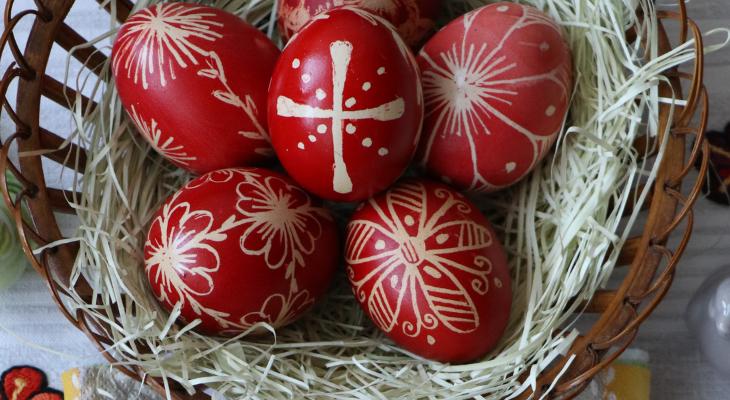Don’t They Know It Is Easter?
April 22, 2022

This article was originally posted on April 30, 2021.
I always looked forward to Easter and considered it my favorite holiday. Before moving to the U.S. I might have taken it a little for granted. You see, it is hard to sometimes appreciate or fully understand something when the whole country is doing it together. There is no Orthodox Easter – it is just Easter. There is no reason for me to explain it to anyone or try to describe a tradition or label anything – we are all doing it together! During Holy Week everything starts slowing down, people are rushing to make last-minute purchases, stores are slowly closing, and the upcoming festivities and celebrations can almost be felt in the air.
Imagine my surprise upon coming to the U.S. and celebrating my first Easter, but didn’t people realize it was Easter? Why are all the egg die and chocolates already sold out and none left for us celebrating a few weeks later? Cue in years of learning to shop way in advance, to answer awkward questions like, “why did you not celebrate Easter yet?” or “why do you have to be so different and not celebrate it with everyone else?” I am not going to lie, my first reaction to those questions was frustration, and feeling insulted was not. But then I realized, this is a melting pot, people are coming from all over the world. Small villages, big cities, and probably many are coming from the same homogenized practices as I did. This was my opportunity to show who I am through explaining and showing some of my traditions and maybe learning a thing or two in a process.
I did not realize the gravity of choosing how to impart and share Easter traditions until I become a mother. There is this child, the first born to our family in the U.S., who is already different than us. He will notice some of the celebrations and religious differences at a much younger age than we did, he will stand out at school by needing to take time off when his peers do not. Will he feel like some old traditions are being forced on him? Will he want to be like everyone else? Or maybe, by sharing and teaching him about why or how we celebrate, will he feel proud and realize that being different is not bad.
Of course, the fact that my son was born in a global pandemic did not make things easier for us as parents. We did not imagine celebrating his first or second Easter on our own, not being able to be surrounded by a larger church community or even family. Here again, was an opportunity for me to learn and discover for myself, what do these traditions really mean to me? As an adult now, I am doing it for myself, there is no parent leading the way. I realized that I am now the one leading, by t example, sharing stories and traditions.
I started simply – I saved onion skins for a few weeks, looked for some nice flowers and leaves in my yard, and colored and decorated our Easter eggs. We color eggs because they are symbols of birth and victory over death – when shells break, the new life comes out of the egg, a fitting analogy of resurrection. It is a tradition, on Easter morning, as soon as a child wakes up, to use one of the eggs and gently rub it over the child’s cheek. It is believed it will make the child rosy and healthy the whole year. It is a small step – keeping my child healthy as tradition narrates, but also a step towards sharing what Easter is, what it means to us, his parents, to his larger Orthodox community, to him as a first-generation American. It is one exciting step, as we wait and see what it will mean to him as an adult and what will he choose to share with his future children.
Learn more about Eastern Orthodox Christianity.
Share
Related Articles
Higher Education
What Does Interfaith Engagement Mean from an Evangelical Perspective?
Higher Education
Interfaith Inspiration
Black and Interfaith: A Family Finds God Through Love and Intersectionality



